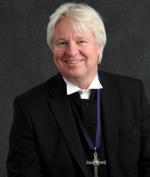
1. I must admit that I am not fond of talking about praying. When you pray, you should not babble, Jesus once advised his friends. There is indeed a kind of prayer babble. But even talking about prayer can become flippant and banal, falling under Jesus’ criticism.
There is another reason why I hesitate to talk about prayer. Prayer is difficult to justify and explain, because it is so useless. It serves no purpose other than itself. I can give a reason for my work, because work results in a useful product. For example, work for peace. Prayer, however, is not productive. Angelus Silesius wrote: "The rose is without 'why'; it blooms simply because it blooms. It pays no attention to itself, nor does it ask whether anyone sees it.” We could say the same about prayer.
2. Speaking in a rather general way, I distinguish between two types of language. One kind contains mainly information, while the content of the other is the speaker. "The train to Munich departs from Hamburg at 1.30 p.m." That is information. It is clear, and it can be verified. One can say whether the content is wrong or right. Anybody can understand it. The language of love, poetry and prayer is completely different.
“Because you have made the Lord your refuge, the Most High your dwelling-place, no evil shall befall you, no scourge come near your tent. For he will command his angels concerning you to guard you in all your ways.” This is not language that takes its script from life. This poem about the positive outcome of things derives its power and passion from the very situation in which evils and wickedness are lying visibly on the path ahead, yet none of those angels are to be seen who are supposed to guard the ways.
Praying means sharing oneself and voicing one's own life.
Praying means giving expression to hope that has not yet died.
Praying is a person’s self-surrender to this mysterious God of grace.
3. Sometimes prayer has been described as a soliloquy, an act of mental self-cleaning. Praying is a person's self-surrender to the mysterious God of grace. It expresses the fact that one cannot come to terms with oneself alone. All self-persistence and self-sufficiency is overcome in love – and also in prayer. Surrendering oneself to God's grace in prayer is therefore not an act of shameful servility, but an act of love that recognizes that it cannot find security in itself alone.
In this respect, prayer is the highest form of passivity. In our current parlance, activity is good and passivity is bad. An activity, for example peace work, that does not know the art of passivity becomes unscrupulous, aimless and merciless. Passivity is the ability to abandon oneself. Freedom from the compulsion to be the guarantor of one's own life is the source of non-violence. In this respect, working for peace in times of war also amounts to the admission that it is not possible simply to produce and make peace.
4. Disagreement is the other great form of prayer. This includes for me supplication, lamentation and disputing with God. I suspect that only someone who is able to praise can also passionately lament, revolt and resist. Both attitudes presuppose a kind of erotic relationship to life – and neither of them is indifferent to what happens to life. To express oneself before God also means to express oneself as a supplicant and plaintiff.
We have cause to lay our lamentation and anger before God that the common bond of prayer with Orthodox Christians is apparently not strong enough at the moment for us to stand up together against war and aggression. This is very disturbing!
From Judaism we learn that in the final instance one must surrender to the dark will of God. And God’s action may be endorsed, despite all the deaths that are died – in life itself and at its end.
But beforehand there is lamentation, and the loud plea that the common prayer of Christians be stronger than national blindness and aggression.
5. How does one actually learn to pray?
Praying is not an art, but a craft. The average person can learn it just as one learns to read and write and cook. It does not require any special innate piety. It does demand a certain attention to life, a certain passion. The ability to have desires, and the ability to find things intolerable. You can pray if you know what to pray for.
Then prayer requires some prosaic virtues:
Regularity, punctuality, perseverance. It does not require a blazing, consuming emotion. On the contrary, one usually feels uncomfortable among people praying so passionately. Praying is hard work. "I have a great deal to do today, so I must do a great deal of praying." So that I am no longer forced to get everything done now and straight away – and so that my prayer is not just a pious exercise for myself alone.
